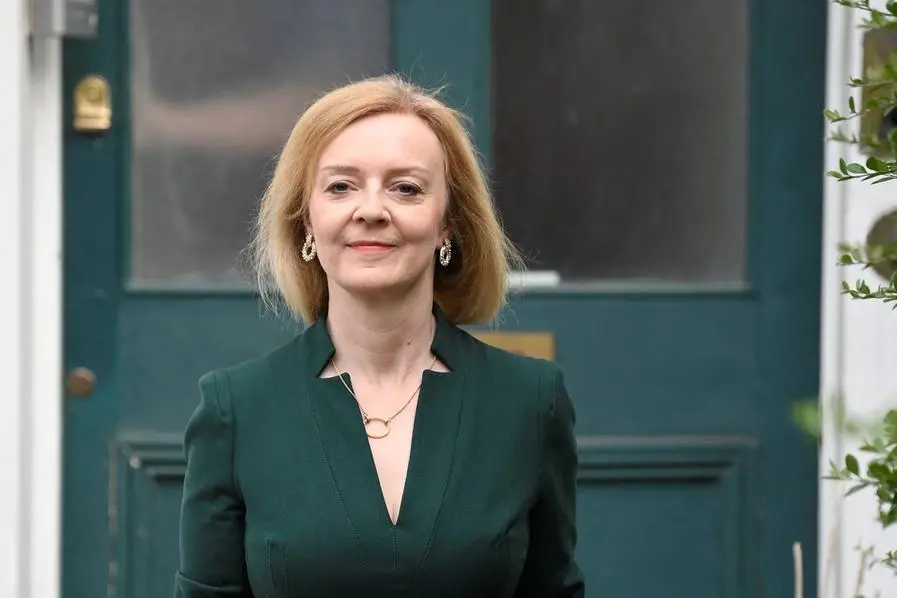PHOTO
LONDON - British Foreign Secretary Liz Truss, the leading contender to succeed Boris Johnson as prime minister, said the Bank of England should not feel its independence will be threatened by a review that she wants to conduct of its policy remit.
The BoE has operational independence to set interest rates to meet a 2% inflation target, which is renewed annually by Britain's finance ministry.
Inflation hit a 40-year high of 9.4% in June, largely due to global factors such as the Russian invasion of Ukraine and post-pandemic labour shortages and supply-chain difficulties.
But some economists and BoE policymakers have said the BoE was slow to spot the build-up in inflation pressures, and wrong to have stuck with a year-long programme of asset purchases which continued until December 2021, when it first raised interest rates.
Truss said earlier this month that she wanted to set "a clear direction of travel" for monetary policy and review the BoE's mandate, drawing a frosty response from one member of the bank's Monetary Policy Committee.
Since her initial remarks, Truss has made it to the final two of the Conservative leadership election, and opinion polls show she has a comfortable lead over former finance minister Rishi Sunak among the nearly 200,000 Conservative Party members who will decide the contest.
In an interview with the ConservativeHome website published on Friday, Truss said the BoE's mandate had not been reviewed properly since it was established in 1997 under Labour finance minister Gordon Brown.
Truss said a review would not impair the BoE's independence, and that she did not have specific changes in mind.
"The Bank of England is independent, it makes decisions about interest rates completely independently of government," she said.
Asked if the BoE should be nervous about a review, she said: "Well are we really saying that the mandate Gordon Brown set in 1997 is fixed in stone forever? I mean that seems an extraordinary claim."
The BoE's monetary policy remit has seen some changes since 1997. In 2003 Brown changed the BoE's target to its current 2% consumer price index from its original 2.5% on the older retail prices index.
Conservative finance minister George Osborne also conducted a review in 2013, which clarified that the BoE could let inflation deviate temporarily from target to reduce longer-term volatility in economic output, and gave the BoE discretion over how fast to return inflation to target.
(Reporting by David Milliken; Editing by Hugh Lawson)





















